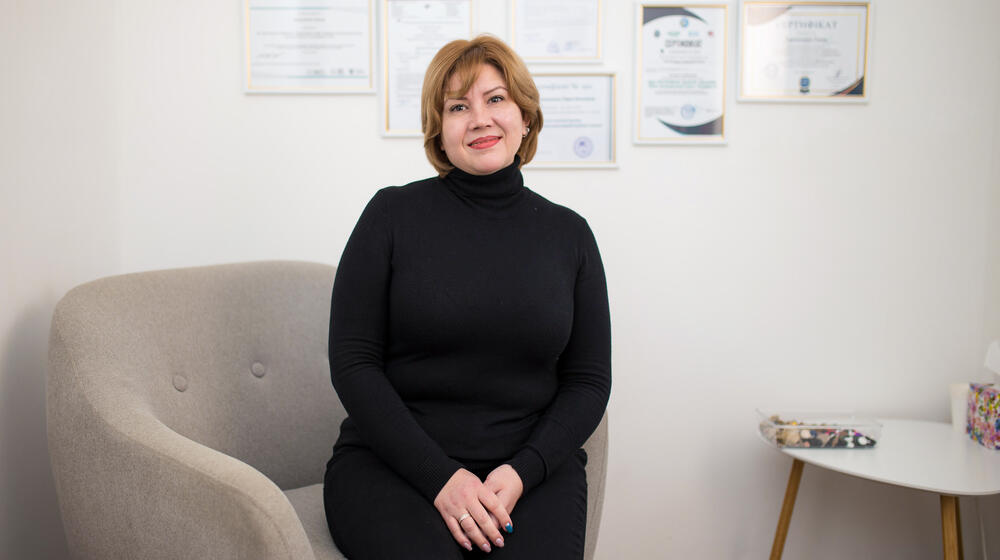"We were left without protection and didn't understand what to do," such were the first days of the war for Hanna Tartynskyi, a psychologist from Berdiansk, which is under temporary military control by Russia. But despite the general confusion, from the first weeks, Hanna began to help others with psychological support.
During the evacuation, she helped change the life of a 6-year-old boy from Mariupol. His parents had died during the shelling of the city. Hanna helped him move to Dnipro and get a family.
After moving to Dnipro, Hanna got a job with the social and psychological assistance mobile team. After that, she started to work at the Survivors Relief Centre. Both services work thanks to the support of the United Nation Population Fund (UNFPA).
Hanna talked to UNFPA about experiencing the war, helping 6-year-old Illya, and the level of domestic violence now in Ukraine.
"The conditions under which people from Mariupol were evacuating and what happened to them were probably the most terrifying things"
“The first day of full-scale war was not unexpected, but it was terrifying. Our city, Berdiansk, was only 70 kilometres from the front line. For eight years we had lived in anxiety, and February was especially emotionally difficult. We knew what was coming.
My children, as volunteers, prepared evacuation routes. But on February 24, we could not go anywhere. Russian troops were everywhere.
In the first week, we had to adapt to the fact that the city is blocked, that our military is not there, that no law enforcement structures are working, that no one is allowed in and out of the city, that the shelves in stores have emptied very quickly. It was scary. We were left defenceless and didn't know what to do. Therefore, we immediately regrouped. My children came to live with me, and we took in another family that had no heating and food supplies. We all arranged the basement together, made sure that we were warm, that there was something to cook food on.
Already on February 27, we found ourselves under the temporary control of the Russian Federation. And a week later I started working. My colleagues and I got together and decided that we would provide humanitarian aid: look for food; look for household items that people needed; make kits and distribute them. At the same time, a humanitarian headquarters was created in the city. I also worked there and responded to calls from people who were in despair and fear. We started a psychological service. Later, I conducted trainings on providing psychological first aid.
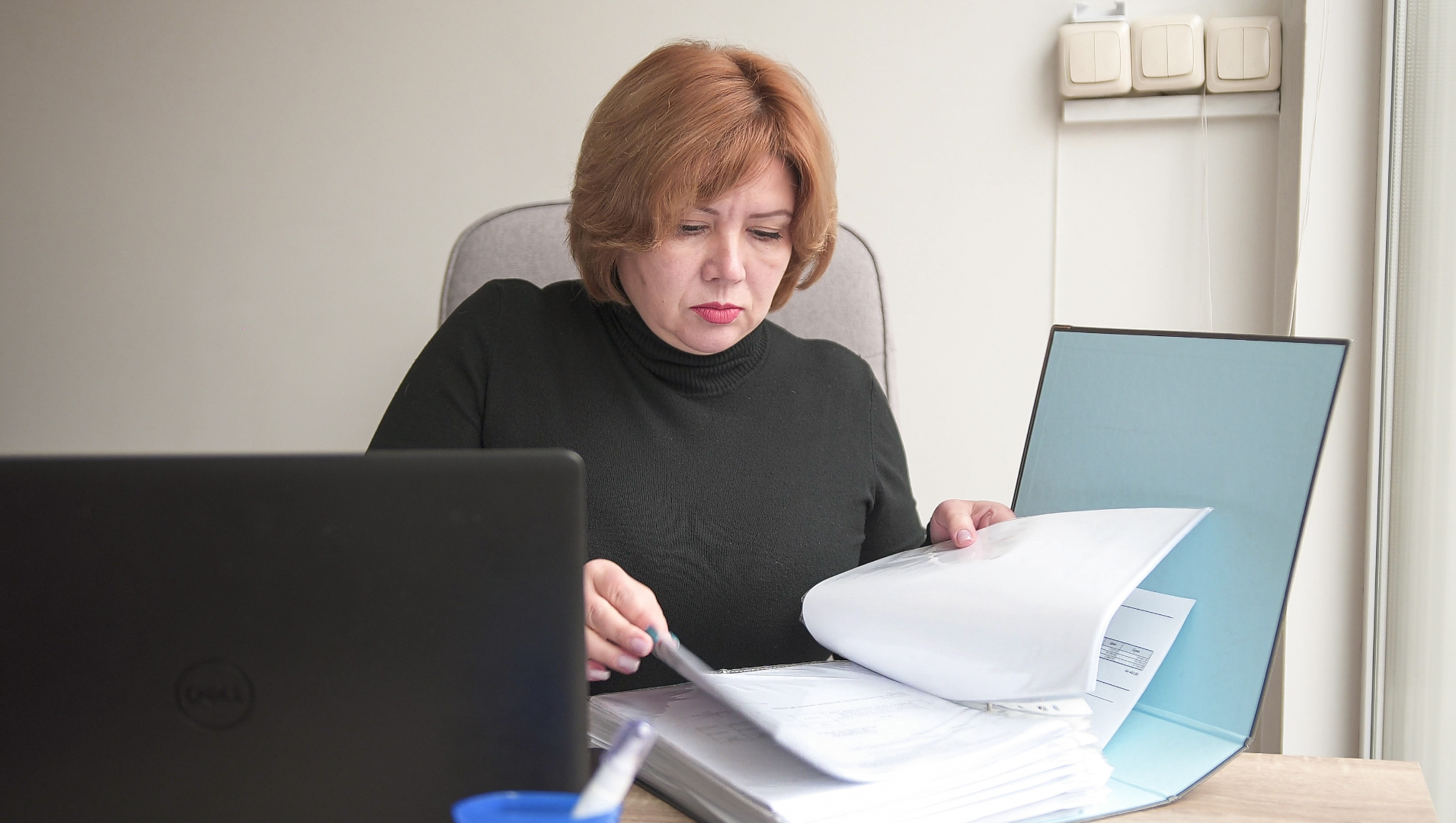
After a while people from Mariupol, who were able to escape, began to come to the city en masse.
There were shot cars, wounded people. For three weeks, almost around the clock, I worked with people from Mariupol. The conditions under which people from Mariupol were evacuating and what happened to them were probably the most terrifying part of our entire life in Berdiansk. Particularly so for me, considering my profession, which meant that I heard the smallest details of their lives.
We could not evacuate to Ukraine-controlled territories — there were no green corridors or ways to leave.
I left Berdiansk in April.
"Help to evacuate six-year-old Illya from Mariupol"
“In 2010, we got to know the NGO "M.ART.IN-CLUB". The mission of this organization is to provide support and protection for children in need. Since 2014, I have worked with them helping people who were forced to move from the zone of active hostilities. And once the head of the organization wrote to me about a boy in Mariupol who has no parents. They died during rocket fire. There is a family looking after him, moving from one bomb shelter to then another. She asked if I could take care of him if they brought him to Berdiansk. Of course, I said yes.
When this boy was brought and handed over to me at the beginning of April, he was in a serious condition, almost unable to speak and in need of treatment. At that time, in Berdiansk we did not have the medicine he needed. When he recovered a little, we went together to Dnipro.
It was very difficult for us to leave. There were many Russian checkpoints on our way, and at each of them people were checked, asked questions, sometimes threatened, sometimes blackmailed. Illya looked out of the window and sometimes said very loudly: ‘Why don't they kill us now?’.

When we saw our first Ukrainian soldiers, almost everyone on the bus cried. They came inside and brought oranges and candies to the children, and after that, calmed down, we drove on. It was a very emotional moment.
In Dnipro, "M.ART.IN-CLUB" helped us; they met us, took care of housing for us, and actively participated in finding a new family for Illya, so that he would not end up in a boarding school. There were many potential candidates, who were moved by his story and sympathized with the boy.
We said to him: ‘Illya, we are looking for good friends for you, with whom you can be with for a long, long time, if you want.’ And when his future adoptive parents arrived, on the second day after meeting them, he said: ‘Can I stay with them for a long time? Can I stay with them?’. He really liked them.
We are currently following Illya's progress on social networks and are inspired by his story.
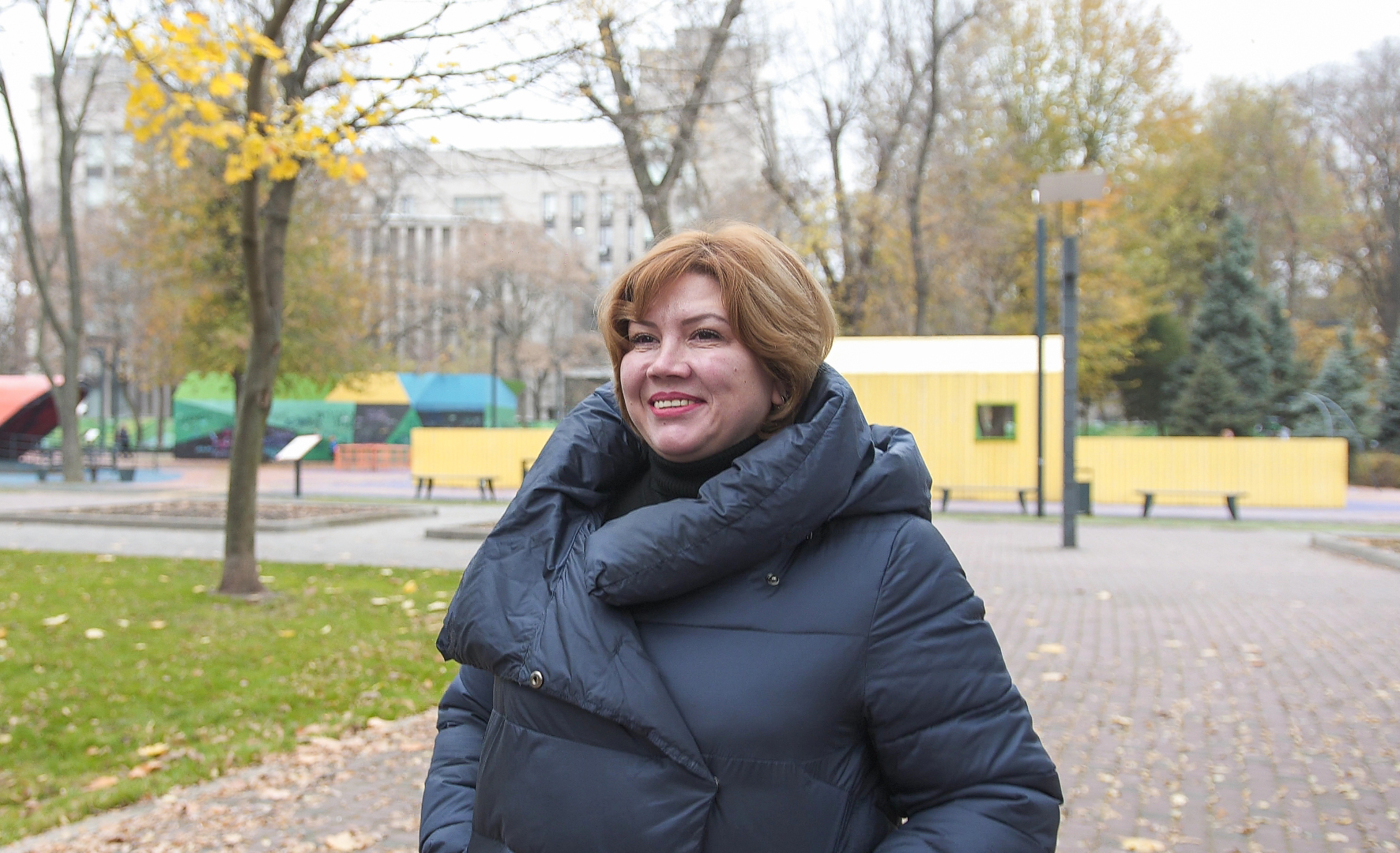
Illya is a boy who wrote a letter to former British Prime Minister Boris Johnson in response to his appeal to Ukrainian children. Illya added a large Ukrainian flag that he had drawn. He wrote:
"Dear Boris Johnson,
I want the war to end as soon as possible, so that no more people die. I want to play football at my stadium in Mariupol. I wish all the children of the world had no war. Say hello to all the children in Britain from me, thank you for helping us. We will win! I am sending you the flag of Ukraine, which I drew.
Hug you tightly.
Illya, 6 years old".
"Domestic violence has migrated with people and it has not disappeared"
“A week or two after moving to Dnipro, I started working in a social and psychological assistance mobile team for survivors of gender-based and/or domestic violence, launched by the UNFPA with support from the Government of the United Kingdom.
Domestic violence has not disappeared. It simply migrated with people. And although at home, where people lived, social services, the police, and neighbors were aware of such families during mass migration, people who suffered from domestic violence find themselves completely at a loss: where to turn, where to look for help? In such cases, mobile brigades can help. Our job is to stabilize people so that they can continue contact with the police, with social services, with people in shelters. The mobile team includes a psychologist, a social worker, and a driver. This is the main feature of the team — it is mobile and can quickly reach a family in need of help. In addition, we can help a person to find a shelter, to move to a secret place the abuser will not find.
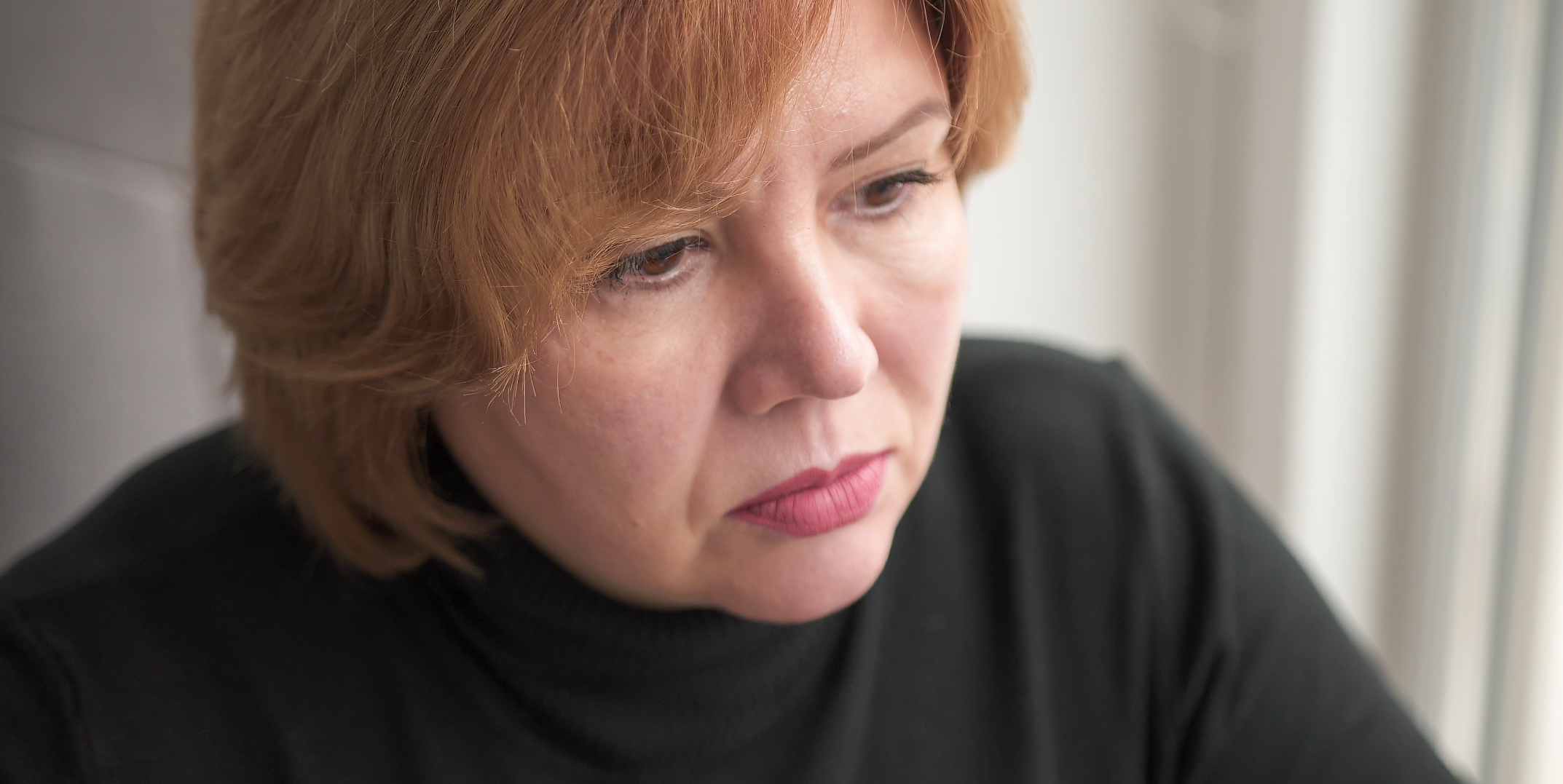
People now often feel stressed, emotionally overloaded. They lose social ties, support, they don't know where to turn for help. This can find expression in conflict, and conflict can turn into violence.
In wartime people sometimes stop thinking about their problems, at the fact that they are suffering in a relationship, they start to think that someone else is much off worse right now, or think that they have more pressing problems. War has come to the fore for many, and people often do not notice the pain they are feeling right at home.
Also, people sometimes confuse conflict and violence, or do not distinguish between them. They think that they are just quarrelling, when in fact it is about violence. Violence can be identified by simple markers: if you are afraid of a person who lives in the same house as you, then, probably, violence is being committed against you. Because when people have quarrels, partners are equal and everyone can express their view of the situation and not be afraid. When someone in the family begins to put pressure on some one else and the other person feels helpless, afraid, then it is necessary to seek help from specialists and understand what is happening.
Any kind of violence injures, makes a person helpless, leaves them with the feeling that they are in danger. Sometimes it is even more terrible than in war, because in war it is clear who the enemy is, but here you are being harmed by a person who seems to be your family.
But thanks to support, people change their lives and this motivates me to continue working in this field. People find safety, happiness, recovery, new relationships, and it really inspires and empowers me to continue working on this difficult, painful subject.
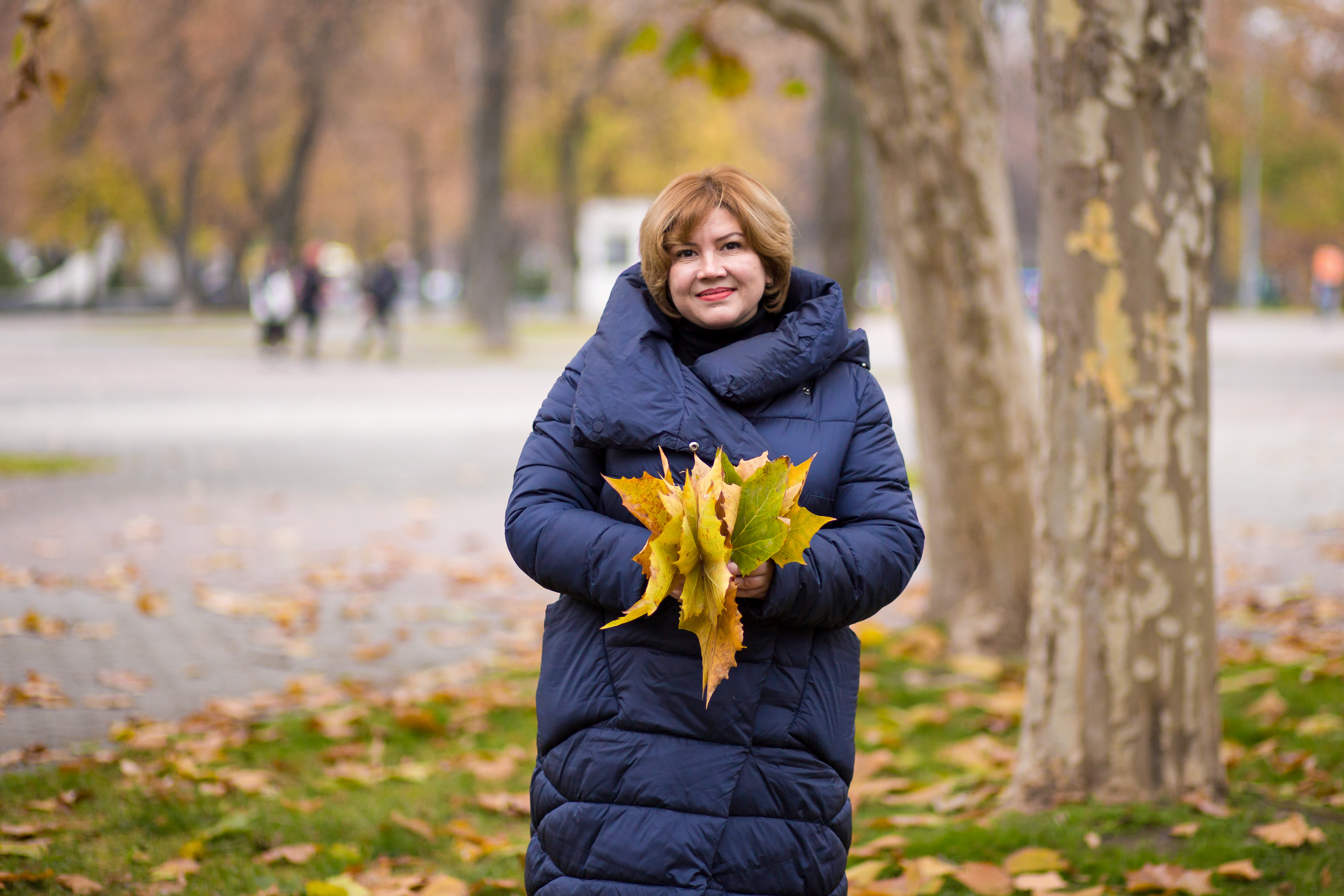
Mobile teams work with the support, the United Nations Population Fund (UNFPA) , in coordination with the Office of the Vice Prime Minister for European and Euro-Atlantic Integration of Ukraine, the Ministry of Social Policy of Ukraine, and with the financial support of the Governments of the United Kingdom, Canada, the United States, and the Humanitarian Fund for Ukraine (UHF).
Як психологиня Центру допомоги врятованим евакуювала осиротілого хлопчика із Маріуполя

